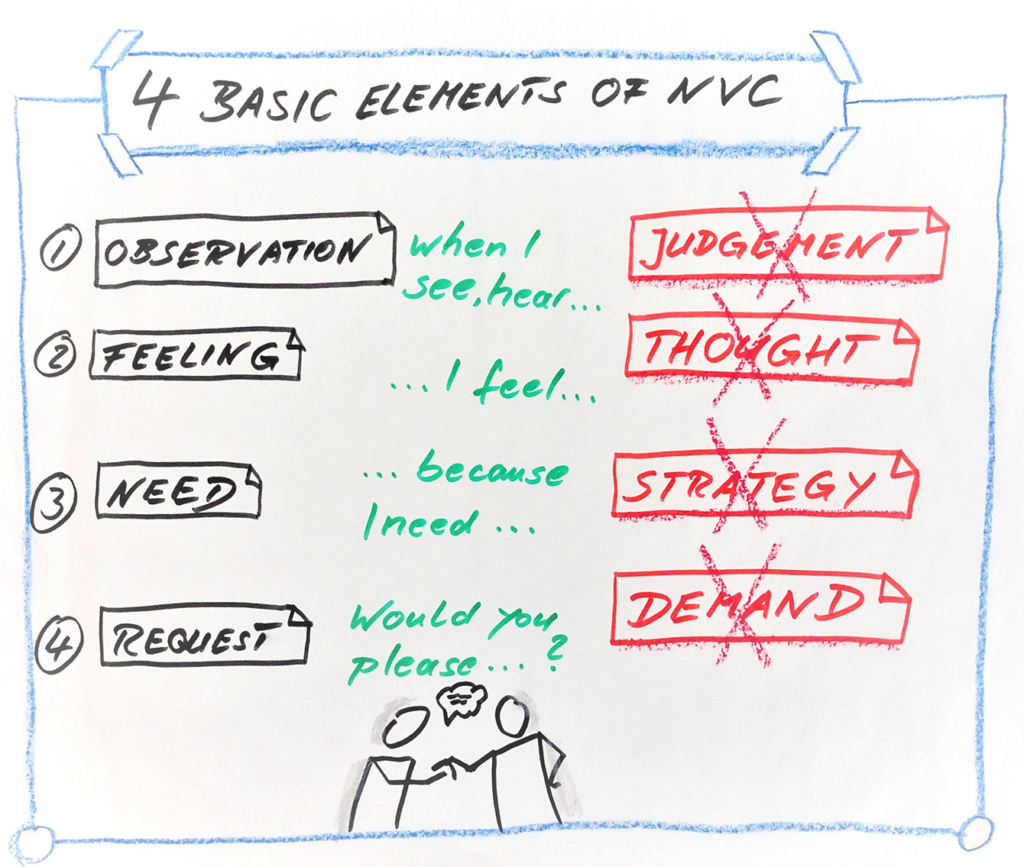»The highest form of human intelligence is the ability to observe without judging.« Jiddu Krishnamurti
When we talk about »efficiency« in companies and institutions, we usually refer to automation, digitization and process optimization. In my experience, the contribution of successful interpersonal communication to increase overall efficiency is overlooked too often.
In times of globalization, international networking and intercultural cooperation, communication between all stakeholders is becoming more and more challenging. Typical barriers are language, culture, social environment and socialization.
Companies invest in quality. Quality primarily stands for »product quality«, »process quality« or »production quality«. The quality of communication, however, often tends to be neglected.
Non Violent Communication is a process that helps us to create understanding and clarity and enables us to connect with each other in order to encourage about supportive action.
The concept of NVC is based on:
- empathy with oneself and others
- mindful and honest self-expression
With NVC we replace our attitude of reproach and instead concentrate on what we perceive, feel, need and wish for. This can profoundly and constructively change the way we look at others and ourselves.
We develop opportunities and resources that contribute to problem-solving in relationships as well as in work contexts. NVC offers effective instruments in conflict management and mediation and generally promotes respectful interaction with one another.
NVC was developed by Dr. Marshall Rosenberg in the 1960s on the basis of client-centered psychotherapy and humanistic psychology according to Carl Rogers.
I use the principles and attitude of NVC in my counseling and offer in-house introductory and advanced seminars. NVC is also the basis for my mediation and coaching services.

